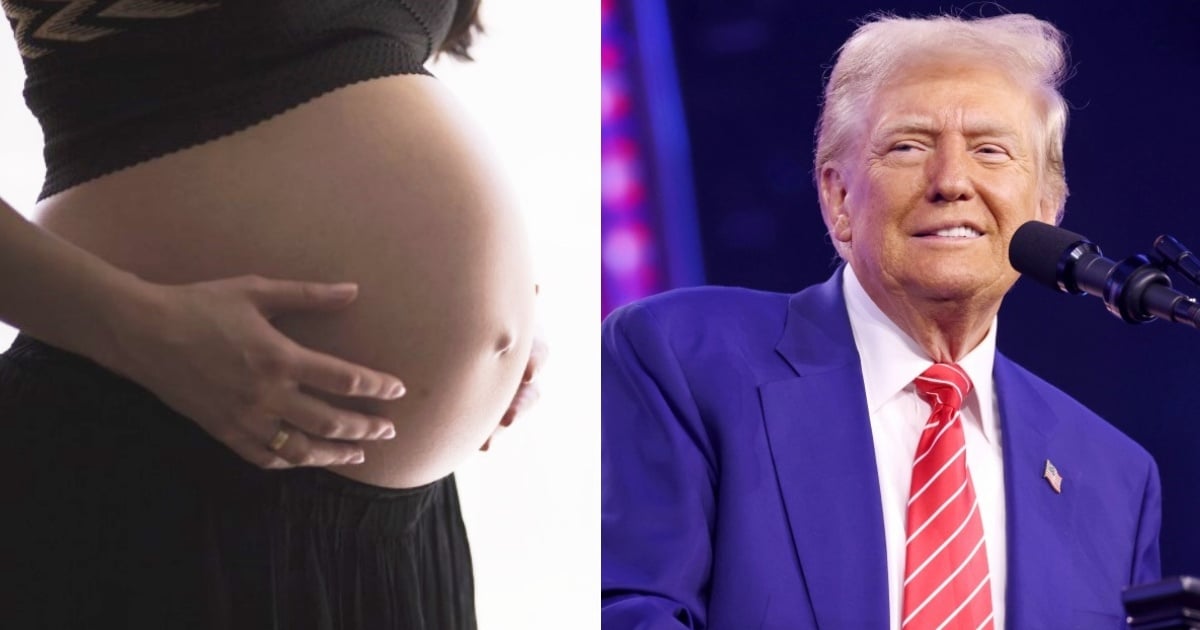President Donald Trump, alongside his team, is exploring a range of strategies to increase the birth rate in the United States. Central to this initiative is a proposed $5,000 "baby bonus" for every American mother after childbirth. This plan, reported by The New York Times, is part of a broader effort to reinforce conservative family values, counteract the nation's demographic decline, and establish a pro-natalist hallmark for his administration.
In addition to the financial incentive, other symbolic proposals include a "National Motherhood Medal" and reforms in academic scholarships, along with educational programs about fertility. These efforts aim to address a historic low in birth rates.
The Birth Rate Crisis: A Starting Point
The backdrop for these proposals is a record-low birth rate. In 2023, the U.S. saw only 1.62 births per woman, the lowest ever recorded, with approximately 3.6 million births, which is 76,000 fewer than the previous year. This downward trend, ongoing for decades, has alarmed various political and social sectors.
Vice President J. D. Vance has been a vocal advocate, warning of a "civilizational crisis." "The fact that we're not having enough babies and children is a crisis in this country," Vance stated, advocating for an increase in the child tax credit to $5,000. "I want more happy children in our country," he said during the March for Life in January, emphasizing the government's role in making it easier for young parents to have children and cherish them as blessings.
Economic and Symbolic Incentives to Encourage Motherhood
Key proposals from the Trump administration include ambitious financial incentives for first-time mothers:
- A $5,000 "baby bonus" after childbirth.
- A "National Motherhood Medal" for women who have six or more children.
- Reallocation of 30% of Fulbright scholarships to married individuals or those with children.
Additionally, educational programs on fertility and reproductive cycles are proposed to help women better understand their biological processes and plan pregnancies more effectively.
White House Press Secretary Karoline Leavitt expressed support for this approach, stating, "The president wants America to be a place where all children can grow up safely and achieve the American dream. As a mother, I am proud to work for a president who is taking significant steps to leave a better country for the next generation," as reported by American media.
Elon Musk: From Political Discourse to Personal Action
An outspoken supporter of the pro-natalist stance is entrepreneur Elon Musk, who, aside from voicing concerns over declining birth rates, appears to have embraced fatherhood as a personal mission. Musk is a father to 14 children, four with Shivon Zilis, an executive at Neuralink. He also shares children with his ex-wife Justine Wilson and artist Grimes. Reports indicate Musk offered $15 million to a woman to have a child with him and keep it secret, and he reportedly used his platform X to contact potential surrogate mothers.
An "Inherently Pronatalist" Administration
Activist Simone Collins, who with her husband has suggested measures like tax exemptions for marriages and medals for prolific mothers, stated, "This administration is inherently pronatalist... look at the number of children key leaders have. We didn't hear about children this way with Biden." Collins noted that their proposals have been well-received by the White House's National Policy Council, suggesting a genuine openness to converting some into executive orders.
Criticism from Progressive Circles
Not everyone approves of these policies. Organizations like MomsRising, representing over a million mothers, have harshly criticized the proposed ideas. Director Kristin Rowe-Finkbeiner described the programs as "coercive and counterproductive recipes for failure," accusing the administration of ignoring more effective solutions. "Families undoubtedly need policies that allow mothers and fathers to care for their children, work, and contribute to their communities," she stated. "This president has had countless opportunities to support those proven-effective policies... yet his administrations have utterly failed in their attempts," she added.
From this perspective, instead of symbolic rewards, ensuring access to affordable daycare, maternal healthcare, and paid family leaves would be more effective.
A Cultural Perspective on Birth Rates
The rhetoric surrounding these proposals extends beyond economics or biology and appeals to a cultural and almost moral perspective on birth rates. J. D. Vance, at a pro-life event, stated, "We need a culture that celebrates life at every stage... one that truly recognizes that the measure of national success is not our GDP or stock market, but whether people feel they can build thriving, healthy families in our country," he said.
While these proposals remain under discussion, they signify a potential ideological shift in American conservatism towards explicit pronatalism, with a robust cultural, religious, and economic component. Unlike more traditional approaches limited to fiscal policies or family assistance, the current narrative aims for a deeper transformation: a society where having children is both an economically supported act by the state and a gesture of national identity.
Key Questions on Trump's Pronatalist Policies
What is the proposed "baby bonus" under Trump's plan?
The "baby bonus" proposed under Trump's plan is a $5,000 incentive for every American mother after childbirth.
Why is the U.S. birth rate considered a crisis?
The U.S. birth rate is considered a crisis because it has reached historically low levels, with only 1.62 births per woman in 2023, raising concerns about demographic decline.
How do critics view the proposed pronatalist policies?
Critics, like the organization MomsRising, view the proposed pronatalist policies as coercive and ineffective, advocating instead for access to affordable childcare, healthcare, and paid family leaves.
